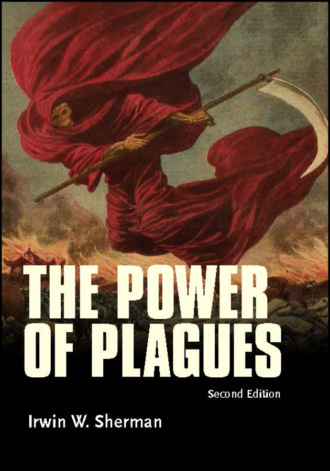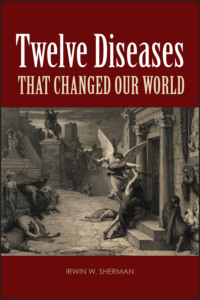
Полная версия
The Power of Plagues
[i]The Power of Plagues[/i] presents a rogues' gallery of epidemic- causing microorganisms placed in the context of world history. Author Irwin W. Sherman introduces the microbes that caused these epidemics and the people who sought (and still seek) to understand how diseases and epidemics are managed. What makes this book especially fascinating are the many threads that Sherman weaves together as he explains how plagues past and present have shaped the outcome of wars and altered the course of medicine, religion, education, feudalism, and science. Cholera gave birth to the field of epidemiology. The bubonic plague epidemic that began in 1346 led to the formation of universities in cities far from the major centers of learning (and hot spots of the Black Death) at that time. And the Anopheles mosquito and malaria aided General George Washington during the American Revolution. Sadly, when microbes have inflicted death and suffering, people have sometimes responded by invoking discrimination, scapegoating, and quarantine, often unfairly, against races or classes of people presumed to be the cause of the epidemic. Pathogens are not the only stars of this book. Many scientists and physicians who toiled to understand, treat, and prevent these plagues are also featured. Sherman tells engaging tales of the development of vaccines, anesthesia, antiseptics, and antibiotics. This arsenal has dramatically reduced the suffering and death caused by infectious diseases, but these plague protectors are imperfect, due to their side effects or attenuation and because microbes almost invariably develop resistance to antimicrobial drugs. [i]The Power of Plagues[/i] provides a sobering reminder that plagues are not a thing of the past. Along with the persistence of tuberculosis, malaria, river blindness, and AIDS, emerging and remerging epidemics continue to confound global and national public health efforts. West Nile virus, Lyme disease, and Ebola and Zika viruses are just some of the newest rogues to plague humans. The argument that civilization has been shaped to a significant degree by the power of plagues is compelling, and [i]The Power of Plagues[/i] makes the case in an engaging and informative way that will be satisfying to scientists and non-scientists alike.


